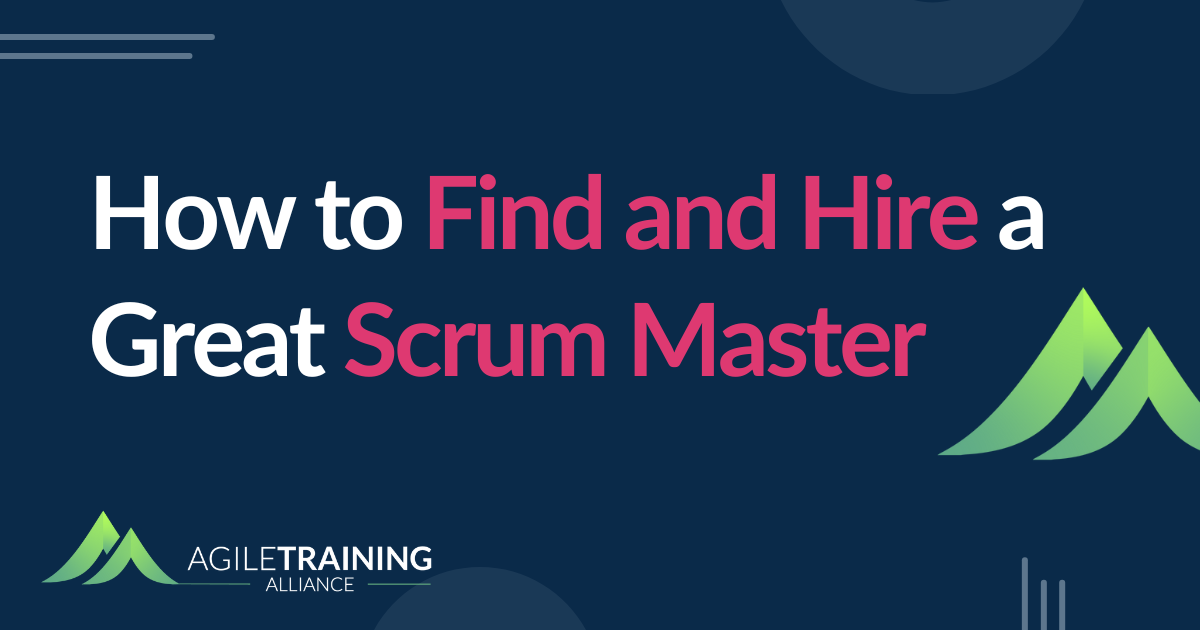How do you find the perfect Scrum Master? What skills should they possess? Drawing from years of Agile experience, we’ve developed a guide to help you hire a great Scrum Master.
Skills of a Great Scrum Master
The Scrum Guide highlights how the Scrum Master is accountable for the team’s effectiveness and serves the Product Owner, Development Team, and the entire organization. To do this effectively, a Scrum Master must possess a diverse set of skills, including:
- Mastery of Scrum
- Facilitation
- Communication
- Problem-solving
- Coaching and Mentoring
- People skills
- Agile mindset
- Empathy
- Listening and observation
- Conflict resolution
- Adaptability
- Servant leadership
- Trainer capabilities
- Change agent
While this list is extensive, the skills aren’t taught in traditional educational institutions. So, how do you identify these qualities in a candidate?
How to Spot a Great Scrum Master from Their CV
The journey to becoming a great Scrum Master involves continuous upskilling and personal growth. When reviewing CVs, I look for evidence of this journey, including:
- Demonstration of skill development over time and how they have actively used it
- Participation in relevant courses and certifications
This progression highlights the passion and dedication needed to become an effective Scrum Master.
Certifications and Courses to Look for on a Scrum Master CV
From years of experience, I’ve developed a set of preferred certifications that I look for in Scrum Master candidates. Although there are many courses available, these are my top picks based on the value they bring:
- Certified ScrumMaster (CSM) by Scrum Alliance: This certification is globally recognized and highly regarded. Scrum Alliance, as a non-profit, reinvests in the Agile community, supporting local user groups and events, like the Scrum User Group South Africa (SUGSA). CSM-certified candidates benefit from world-class trainers, ensuring they have a deep understanding of Scrum fundamentals.
While Scrum Master certifications are essential, they’re not the only thing to look for. A well-rounded Scrum Master should have evidence of other courses that grow key skills such as facilitation, coaching, and training.
Some additional certifications to look out for include:
- IC Agile Certifications like Agile Team Facilitation and Agile Coaching.
- Training from the BACK of the Room (TBR): Focuses on facilitation and training skills, enhancing understanding of how the human brain learns.
- Advanced CSM Certifications such as A-CSM (Advanced Certified ScrumMaster) and CSP-SM (Certified Scrum Professional ScrumMaster).
A great Scrum Master should also be familiar with other Agile frameworks, such as XP, Kanban, and SAFe, to help teams optimize their workflows.
Should You Only Look for Certifications?
No! Certifications are just one part of the puzzle. A truly great Scrum Master is defined by their experience, attitude, and personality. During the interview process, I focus on soft skills such as:
- Communication and active listening
- People skills and empathy
- Agile mindset and adaptability
- Observational skills and servant leadership
Ultimately, a Scrum Master’s mindset should align with that of a servant leader—someone who supports the team and helps them thrive.
Conclusion
Hiring a great Scrum Master is about more than just finding someone with certifications. It’s about identifying someone with a passion for Agile, who has undergone a journey of learning and growth, and who embodies the values of servant leadership. Look for evidence of both hard and soft skills, along with a deep understanding of Scrum and Agile practices. This balance will help you hire a Scrum Master who can truly drive your teams to success.





